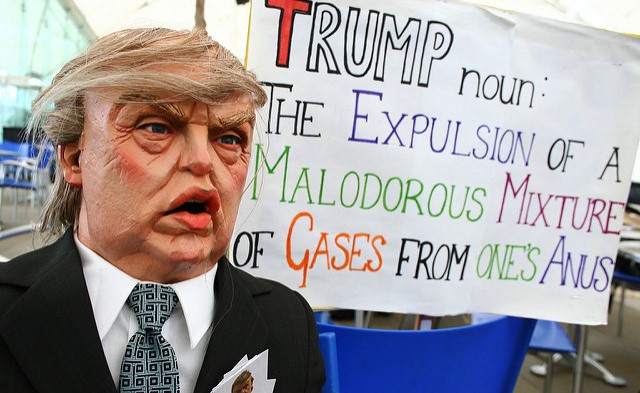Constructive or Quixotic? Another Donor Devotes Millions to Improve Civic Discourse
/
Sure, the current presidential campaign is a sordid affair, but it doesn't hold a candle to the rhetorical steel cage match between Thomas Jefferson and John Adams in 1800. Jefferson's camp accused President Adams of having a "hideous hermaphroditical character, which has neither the force and firmness of a man, nor the gentleness and sensibility of a woman."
In return, Adams' men called Vice President Jefferson "a mean-spirited, low-lived fellow, the son of a half-breed Indian squaw, sired by a Virginia mulatto father."
Ouch.
We exhume this tit-for-tat for two reasons. First, it's hilarious. Second, to establish some sort of historical context. Sure, our political discourse is unacceptably nasty. But it's nothing new. That's what you get in a country without a monarchy, right?
Comforted by this knowledge, some of us simply shrug and accept the status quo. Others, like Jonathan and Lizzie Tisch, prefer to do something about it. The couple donated $15 million to the former Tisch College at the Medford, Massachusetts-based Tufts College, which will henceforth be known as the Jonathan M. Tisch College of Civic Life, whose goal is to "develop a comment of leaders who are able to rise above the fray and bring positive change to the public sphere."
The gift will endow professorships in the emerging field of civic studies, which examines why people get involved in causes and what happens when they do. It will also support ongoing research on youth voting and political engagement, and expand opportunities for students from all socioeconomic backgrounds to participate in service learning and leadership development programs as well as internships.
In other words, the gift suggests that improving the public discourse requires more than shaming candidates and pleading with them to behave themselves. Change needs to be affected in the civic sphere from the ground up. Idealistic young people need to get involved knowing that their dignity will remain intact. "We believe that higher education has a responsibility to act to help young people become agents for thoughtful advocacy, action and positive change,” says Tufts President Anthony P. Monaco.
As for Tisch, the co-chairman of the board and a member of the office of the president of Loews Corp., boosting the quality of civic dialogue is near and dear to his heart. In 2006, he gave $40 million gift to Tufts to endow the first institution-wide college of its kind, the University College of Citizenship and Public Service, as the Jonathan M. Tisch College of Citizenship and Public Service.
Tisch isn't alone in his desire to create a more perfect union of political discourse at the university level. We recently looked at a $5.75 million gift from the John Templeton Foundation to the University of Connecticut to support research into ways of "balancing humility and conviction in today's political arena." And we mustn't forget the Hewlett Foundation's Madison Initiative, which seeks to reduce the high level of polarization and hyper-partisanship in the U.S. Congress. (A goal that we've argued will only be accomplished once the GOP's loony base is no longer driving the Republican train.)
Related:Why Won't FoundationsLikeHewlettJustStand Up andFightforTheirValues?
When viewed through a cynical lens, we can't help but feel that these civic improvement efforts are laudable but slightly pie-in-the-sky. Can millions of dollars really compel millions of reactionary adults to behave? Or tame the Twitter mobs or get profit-hungry cable news networks to actually focus on issues? We wonder. These goals seem overly ambitious for philanthropy, given its limited resources. On the other hand, grants to advance structural changes in our democracy like campaign finance reform, an end to gerrymandering, and easier voting strike us as a more strategic use of funds.
Meanwhile, the country is poised for a very unpleasant Clinton versus Trump presidential matchup. Just remember it could always be—and has been—worse. Much worse.
History tells us that particularly brutal invective levied at Andrew Jackson's wife Rachel by his opponents during the 1828 campaign likely contributed to her premature death. "May God Almighty forgive her murderers," he swore at her funeral. "I never can."








